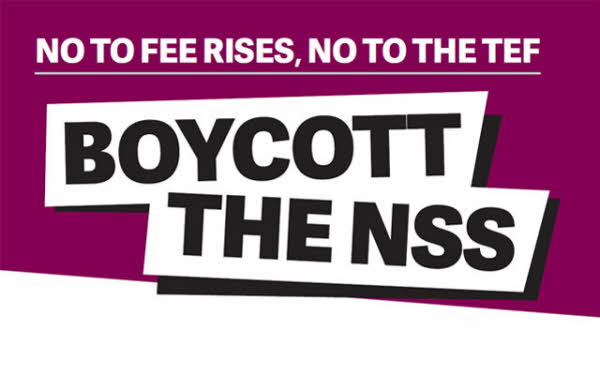Sorana Vieru, the Vice-President Higher Education at the National Union of Students, or NUS, has called for students to boycott the National Student Survey to stop plans to raise fees based on university performance.
The National Student Survey, or NSS, is sent annually to final year undergraduate students as a way of gleaning feedback on their courses and universities, with incentives offered in exchange for their input.
The NSS provides student satisfaction statistics for institutional league tables and is often utilised in university marketing.
The failure to score highly on the survey, it is claimed, can cause a university to slip in the league tables and may threaten the future job prospects of graduates.
From this year, the Teaching Excellence Framework, or TEF, will be introduced by the Department of Education as a means of assessing the quality of teaching in higher education institutions, with the NSS results playing a major role.
Jo Johnson, the Minister of State for Universities, proposed the scheme to draw government focus towards teaching, after the governments focus on research had “relegated teaching to a poor second cousin”.
Dependent on the TEF results, universities will receive a gold, silver or bronze rating, which will be used as a marker of excellence for prospective students.
The results will also be used as a tool by which to raise tuition fees, with the colour of medal deciding the level of fee increase that universities can charge.
By 2020, it is estimated that some universities will be charging more than £12,000 per year in fees.
Vieru highlighted that the NSS has little to do with teaching quality and that a rough approximation of teaching quality through “misinterpreted student feedback” has the potential to dramatically change the university landscape and spread inequality of opportunity.
“We should be aiming to give equality in the higher education experience whatever course you’re on, whatever institution you’re at. It’s essentially a Trojan horse for raising tuition fees,” she stated.
“If you need to pay more to go to the best universities and less in order to go to the bronze ones, what does that mean for the aspirations of poor students?”
She accused the government of an ideological desire to commercialise education, and hoped that even a small reduction in NSS participation would send a signal to the government that students refuse to be complicit in the hiking of fees for future generations.
Over twenty university unions have so far agreed to support the boycott of the NSS, which is available from now until April, and several others have agreed not to promote it.
The boycott can also be viewed as a conscious effort to return the NUS to its core principles after the NUS representative for Durham University, Tom Harwood, brandished NUS an “irrelevant student body” that fails to truly represent students and address problems that affect them.
The Higher Education Funding Council for England, or HEFCE, has said it will monitor the impact on the results when the survey is complete and has defended the NSS as a way to “provide information to prospective students about university choices”.
“Since 2005, the NSS has helped over 2 million students make their voices heard about the things that matter to them,” a spokesperson stated.
“The results are used by senior management teams, academics, students’ unions, and others to drive improvements in curriculum, teaching and learning quality, learning resources, and academic support.”
Jonathan Chard
(Image: NUS)

